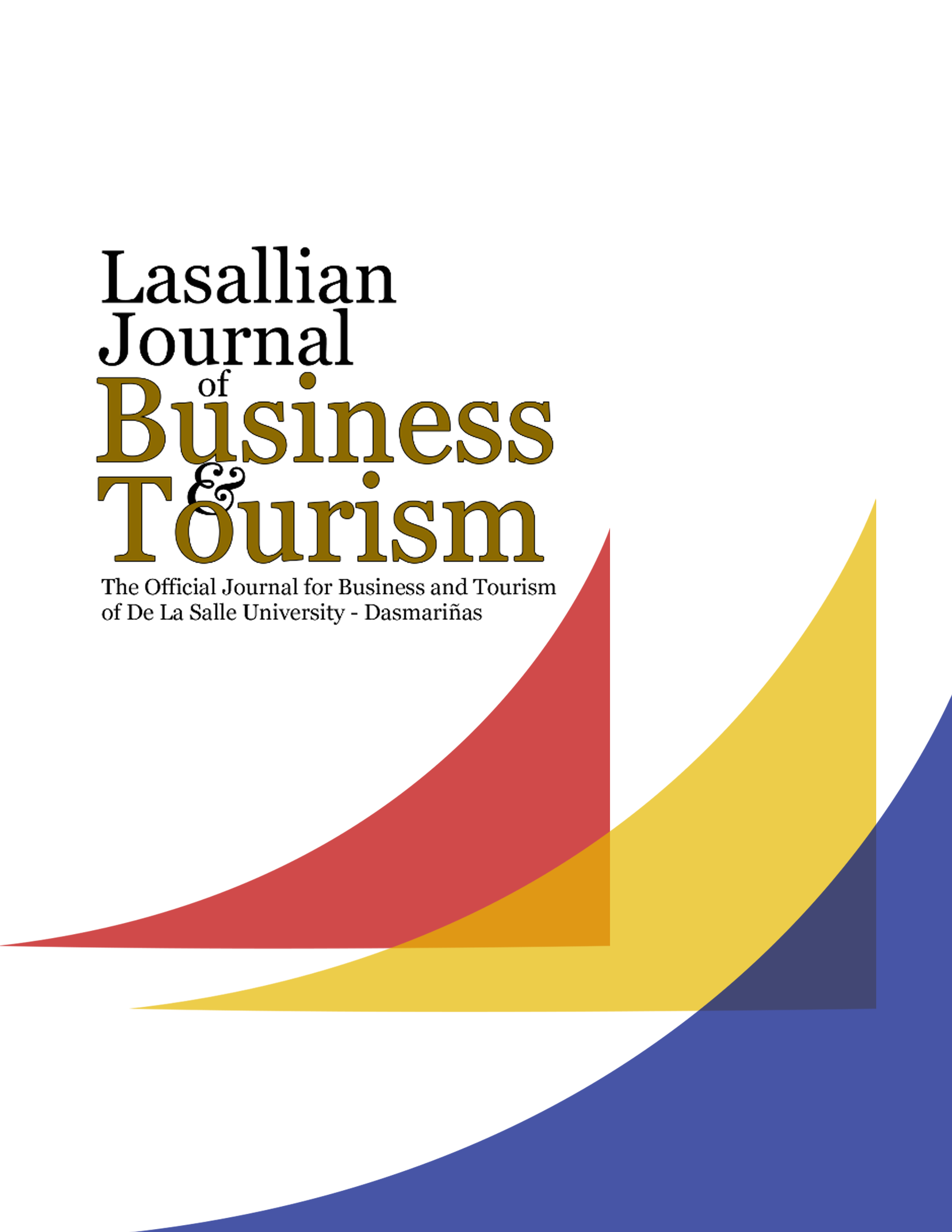
The Lasallian Journal of Business & Tourism (LJBT) aims to publish quality, up-to-date, and real-world researches that are useful for stakeholders in business and tourism. The journal welcomes researches that will contribute to the knowledge, solving problems, developing and testing theories through empirical, conceptual, and integrative reviews using various research methodologies.
The following topics are publishable within the area of business and tourism: management, economics, marketing, accounting and finance, operations, community development, sustainability, risk management, technology use and integration, histo-cultural, food and education within provincial, regional, national, and international level.
As a journal bearing the Lasallian name, the scope of this journal extends to addressing the integration of faith, poverty alleviation, social justice, inclusivity, and raising academic quality but must still be within the context of business and tourism.
All articles undergo double-blind peer-review. LJBT is an open access journal and papers may be accessed and downloaded subject to copyright laws of the Philippines.
The journal is published bi-annually by the University Research Office, De La Salle University- Dasmariñas.
Paul Anthony Notorio (Tourism, DLSU-D)
Dr. Jacqueline L. Morta (Business Management, DLSU-D)
Dr. Jimford U. Tabuyo (Tourism, DLSU-D)
Jaime Zeus C. Agustin (Research Communication, Dissemination and Utilization Coordinator, URO, DLSU-D)
The editorial board shall be responsible for all the materials submitted by authors. The board shall govern the publication in accordance with this code.
Once a paper is considered for publication, authors will be asked to sign a declaration form indicating observance of the editorial policies of LJBT.
The Editorial Board subscribes to Committee on Publication Ethics (COPE) being individual members.
LJBT provides immediate open access to its content on the principle that making research freely available to the public supports a greater global exchange of knowledge.
Copyrights for articles are retained by the authors, with first publication rights granted to the journal. Authors have the rights to reuse, republish, archive, and distribute their own articles after publication. The journal/publisher is not responsible for subsequent uses of the work.
Submission of a paper in LJBT will be taken to imply that it presents original unpublished work, not under consideration elsewhere. A copyright assignment form will be sent to the author/s of accepted papers. This publishing agreement should be completed and returned within 5 days.
LJBT’s abstracting and indexing services provide and store information about the articles. The Journal’s website assures the availability and accessibility of articles for the scientific community and its various stakeholders.
Authors may archive the published version of their articles in both personal and institutional repositories after publication.
LJBT accepts papers all year round and releases its publications twice a year, every July and January.
Special issues are also released.
LJBT is published through the University Research Office of De La Salle University – Dasmarinas which believes that scientific findings must be shared to the community to further academic discourses and research. Thus, LJBT does not charge any publication fees from its contributors.